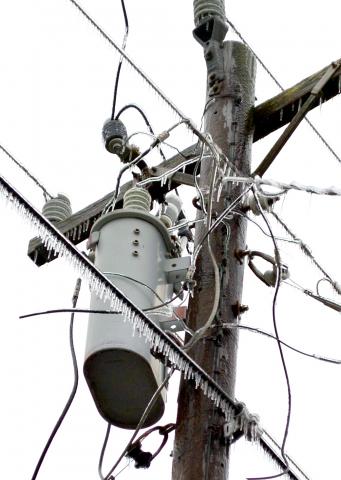When ice builds up, the added weight can break trees, poles and wires leading to power outages. MLEC crews will work to restore power, but there are a few things you can do to prepare.
“Damage caused by ice can be widespread and create extended power outages,” says Trent Scott, vice president of corporate strategy for the Tennessee Electric Cooperative Association. “Co-ops are closely monitoring forecasts and preparing crews and equipment to respond quickly if outages occur, and we encourage our members to get ready for the potential of power outages, especially in the hardest hit areas.”
Stay Warm.
Plan to use a safe alternate heating source, such as a fireplace or wood-burning stove during a power outage. These are great options to keep you and your loved ones warm, but exercise caution when using, and never leave the heating source unattended. If you are using gasoline-, propane- or natural gas-burning devices to stay warm, never use them indoors. Remember that fuel- and wood-burning sources of heat should always be properly ventilated. Always read the manufacturer’s directions before using.

Stay Fed.
Have several days’ supply of food that does not need to be cooked handy. Crackers, cereal, canned goods and bread are good options. Five gallons of water per person should also be available in the event of an extended power outage.
Stay Safe.
When an outage occurs, it usually means power lines are down. It is best not to travel during winter storms, but if you must, bring a survival kit along, and do not travel alone. If you encounter downed lines, always assume they are live. Stay as far away from the downed lines as possible, and report the situation to your local electric co-op. Take caution when using generators. Follow all directions and do not connect a generator to your home’s electrical system without proper equipment and inspections. Check on the welfare of neighbors, especially the elderly. For more information on being prepared, visit MLEC's Storm Safety page.
